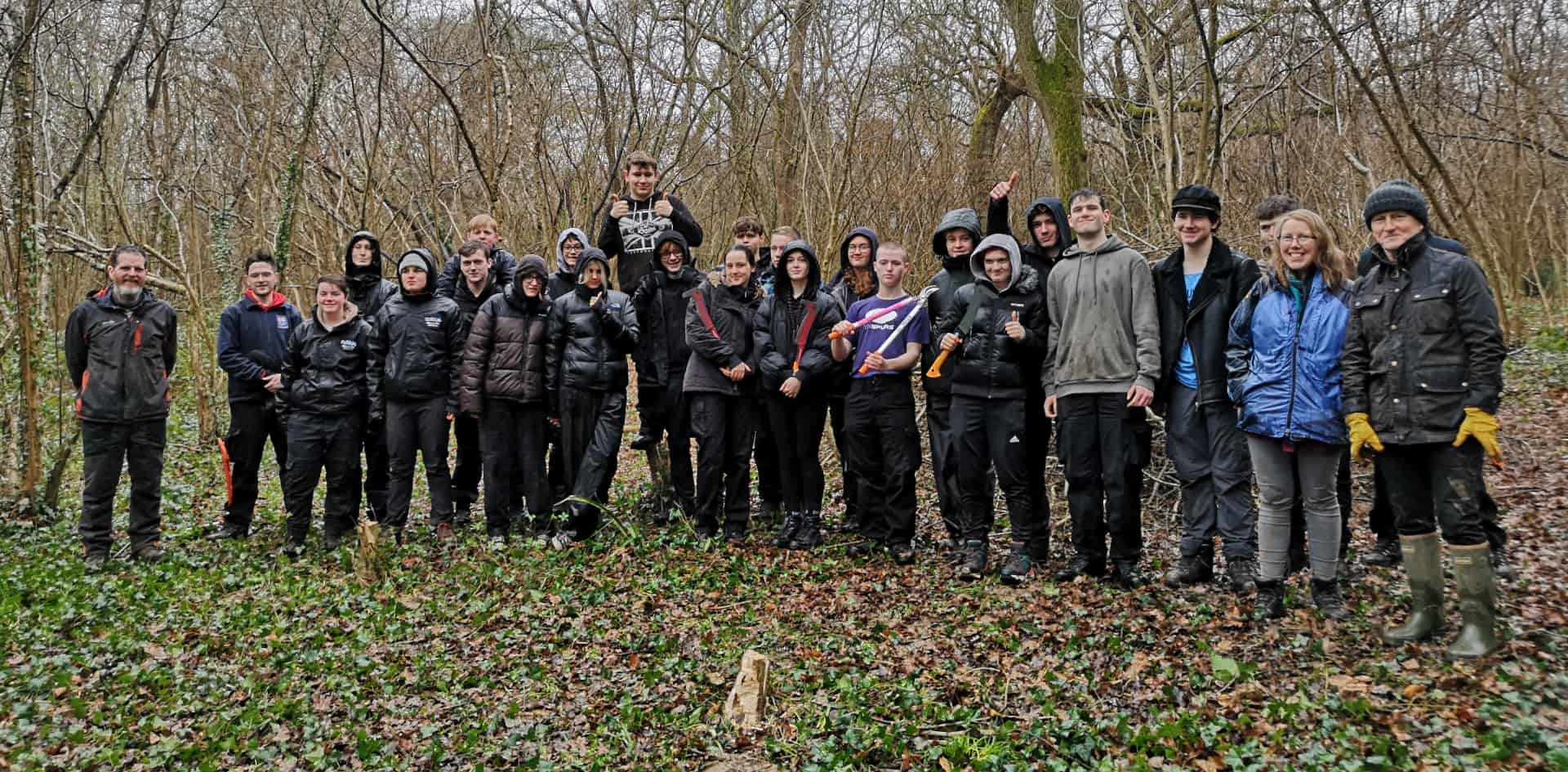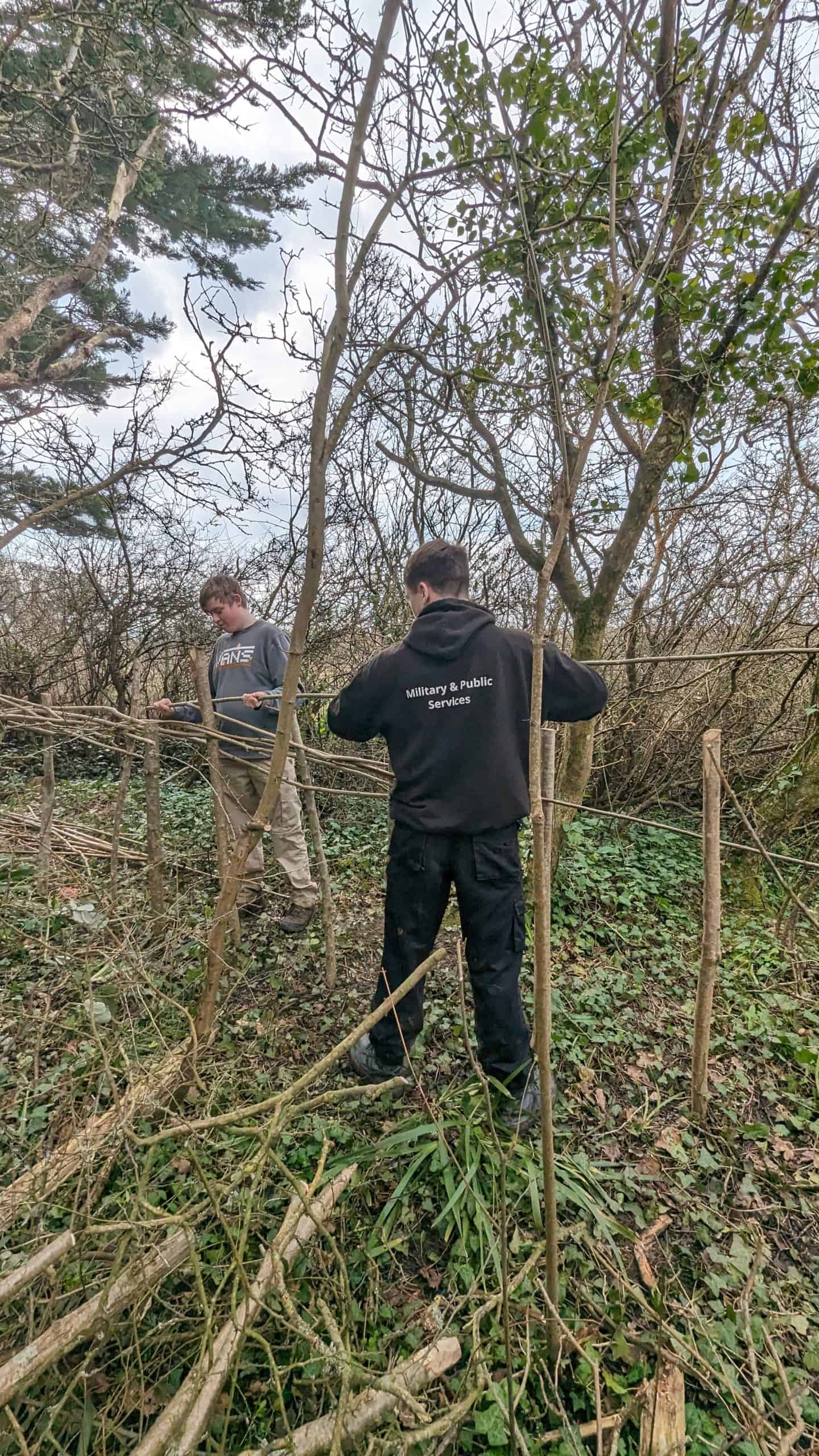Students from Isle of Wight College have been learning new skills, whilst helping Wight Nature Fund trustees breathe new life into Mill Copse, a popular public-access woodland, south of Yarmouth.
The students from the Uniformed Public Services course at Isle of Wight College have been volunteering, as part of their Duke of Edinburgh Scheme.
Working with Wight Nature Fund
Working with the trustees of Wight Nature Fund, the students were taught skills specific to the work, including coppicing, hedge-making using natural materials from the copse and creating wildlife habitats.
This work has enhanced the student’s key skills, including teamwork and leadership, in a practical environment.
Grant from DEFRA
The work was made possible through a grant for the hand tools the students used. The grant was from the DEFRA Farming In Protected Landscapes fund, awarded by the Isle of Wight National Landscape (formerly AONB) Partnership.
The volunteering took place over four weeks in February and March. The newly coppiced area has helped create space for natural plant to species to thrive. This will improve the health and biodiversity of Mill Copse, whilst creating useful coppice products from the woodland.

Gill: The project has vividly demonstrated that what they do truly makes a difference
Vykke Gill, course leader from Isle of Wight College, said,
“Participating in the Mill Copse conservation project has been an extraordinarily rewarding experience, not only for the environment but significantly for our Uniformed Public Services students.
“This project has transcended traditional classroom boundaries, providing our students with a unique opportunity to engage directly with the natural world. It’s been a practical extension of their Duke of Edinburgh (DofE) Award efforts, where the principles of leadership, teamwork, and personal development are put into real-world practice.
“Seeing our students apply themselves in coppicing and hedge laying, mastering new tools and techniques, has been a testament to the resilience and adaptability that we strive to instil in them. This initiative has reinforced invaluable skills such as leadership, teamwork, and problem-solving, which are essential in the uniformed services.
“More importantly, it has shown them the tangible impact of their actions on the community and environment. The project has vividly demonstrated that what they do truly makes a difference, enhancing their understanding of environmental stewardship and community responsibility.”
Developing environmental awareness skills
17 year-old Grace was one of the students from the course, and said the opportunity has been a real eye opener.
“We’re all learning different skills whilst we’re out here on the job and learning more about the environment we’re in as well.
“I think that’s a very big part because I’ve never been here [Mill Copse] before, so that’s also developing our environmental awareness skills.”
Grace: It’s likely that I’m going to be doing volunteering here again
Grace said that she will be back,
“I’m definitely going to come back here because this is a new environment that I can explore and it’s likely that I’m going to be doing volunteering here again.”

Cowley: The difference it has made to our valuable Ancient woodland is significant
Wight Nature Fund trustee Thomas Cowley was on hand to teach some of the skills and direct the work.
Thomas said,
“The work of the Uniformed Public Services students has been outstanding. They have been super-keen, often working through inclement weather, to help enhance the environment that will improve biodiversity in Mill Copse.
“On behalf of the trustees of Wight Nature Fund, and the people that use Mill Copse as a recreational destination, I want to thank the Uniformed Services Course at the College for their work. The difference it has made to our valuable Ancient woodland is significant.
“The coppicing work helps increase the biodiversity in the woodland. It will allow the bluebells in this area to increase in number and allow woodland butterflies to flourish, too. Coppicing work is an ancient technique, which creates many more hazel stems where the work is done. This enhances the environment for endangered native species including dormice and the Island’s red squirrels”
News shared by Simon on behalf of Wight Nature Fund. Ed




